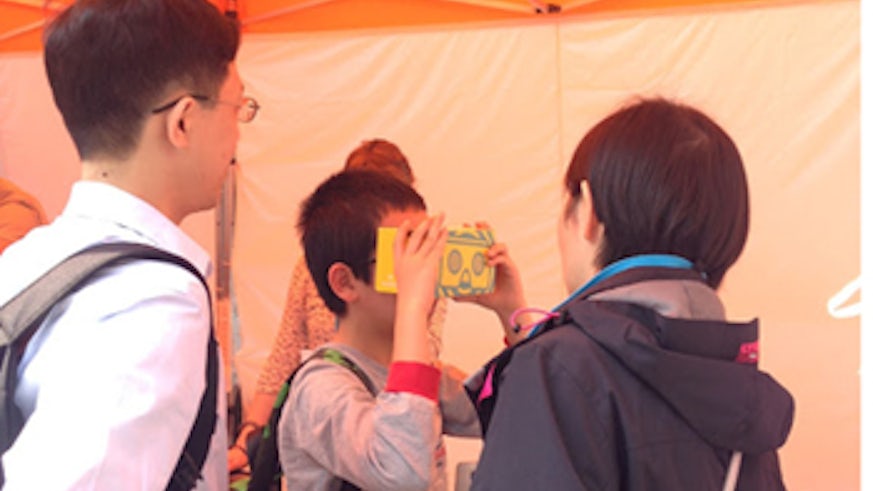Inspiring Hong Kong to Reach for the Impossible
31 March 2016

It was once believed that the Sun orbited the Earth and the idea of humans walking on the moon was nothing but a daydream. Science and technology have both quenched and further intensified our curiosity about the Universe. We are on an eternal mission to try to explain the “impossible” and explore the boundaries of our knowledge.
The year 2016 signifies an important year during which some seemingly impossible things have been made possible – humans lived in space for almost a year and scientists have discovered gravitational waves, ripples in the fabric of spacetime – proving to us time and again how the power of science can enable us to achieve the seemingly impossible.
To celebrate this triumphant year for science, the British Council invited the School of Physics and Astronomy's Dr Edward Gomez, Prof Haley Gomez and Sarah Eve Roberts, along with Zoe Gamble and Becca Smithers from science made simple, to Hong Kong earlier in the month to showcase examples of "impossible to possible" science to families and students at Science Alive 2016.
Every year for the past 23 years, Science Alive has invited leading UK academics and communicators in various fields of science to engage Hong Kong's students, teachers and the public in activities that promote a wider understanding of science. This year was the turn of the School of Physics and Astronomy and science made simple. During the festival both teams delivered a variety of drop-in activities, science walk-about demos and family shows, inviting parents, children, grandparents and friends to listen to black holes in a game of Black Hole Hunter, see themselves in invisible infrared light, discover how technology can help replace parts of our body and much more.
Secondary school students from local schools were also invited to participate in workshops: "Red Dwarfs and Blue Supergiants: the life and times of stars" and "Madlab". The astronomy workshop allowed participants to use Star-in-a-Box and LCOGT's robotic telescopes to explore the entire life-cycle of stars, from dramatic birth to violent end, and discover what a star’s mass can reveal about its past and its future.
Dr Edward Gomez, LCOGT educational specialist, said: "We were blown away with the enthusiastic response from the science festival audience, they threw themselves into every aspect of the science we were presenting. We hope to have sparked an interest in science within the children, families and students in Hong Kong, so they continue asking questions about the Universe around them."